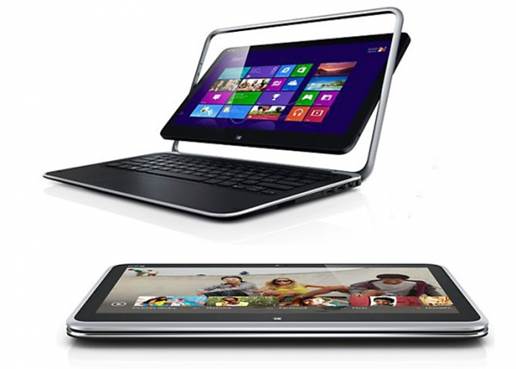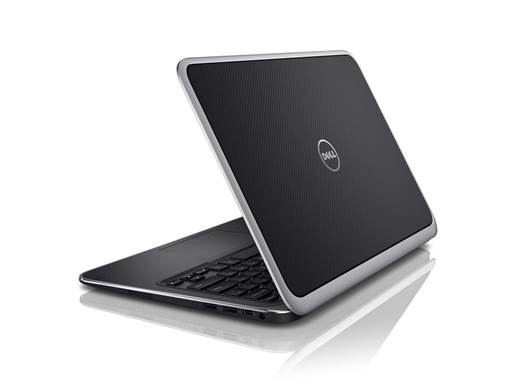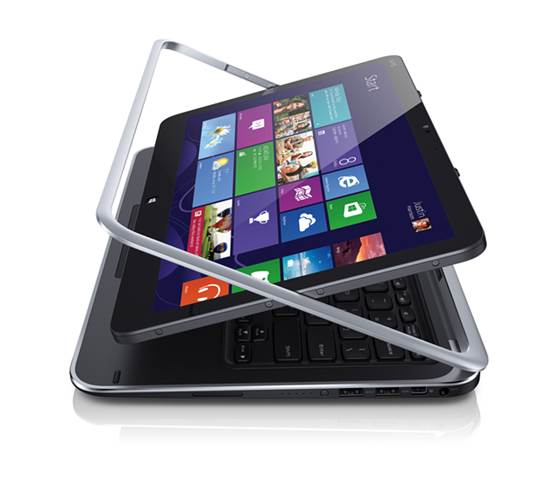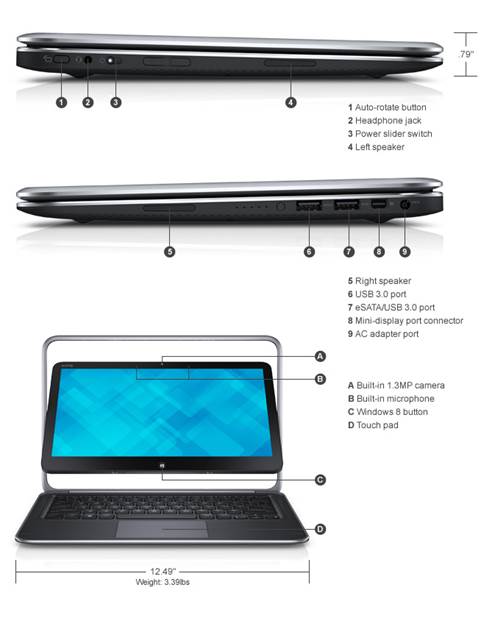Thanks to the more post-PC Era-friendly
inclinations of Microsoft’s latest Windows 8 operating system, computer makers
have been challenged to realize their respective visions of the ideal modern
laptop-tablet convertible in order to keep up with the times. Here is Dell’s
initial hybrid champion, the XPS 12.

Dell
XPS 12
Fans of the Dell XPS 13 Ultrabook’s solid
look and feel will be pleased to find much of the same on the XPS 12, albeit
with a distinctive twist or swivel, actually. Coming with a swivel point at the
middle of its bezel, the XPS 12 has a screen that flips around to transform the
device into a more touch-friendly tablet as soon as you shut the lid. Magnets
hold the screen firmly in place, requiring a good, solid push before the
display snaps off the bezel to change position. The XPS 12 handles comfortably
as a tablet, keeping its physical keyboard hidden and beyond the user’s touch.
However, we do have reservations about how sturdy the swivel point will prove
to be in the long run and feel that 1.52kg is a tad heavy for prolonged tablet
mode use.
Another physical highlight of the XPS 12 is
the 1920 x 1080-pixel Full HD screen, lending to a crisp, fairly pixel-dense
12.5- inch display, which Dell believes to be the ideal compromise for both
work and content consumption. Either way, the Modern UI on Windows 8 is
rendered splendidly on this Corning Gorilla Glass protected display. Brightness
is satisfactory, although we noticed it being prone to reflections and,
naturally, fingerprints.

The
XPS 12 has only two USB 3.0 slots, a mini- DisplayPort instead of any HDMI
provisions
While the XPS 12’s XPS 13-like form factor
has its merits, it also retains the same faults in the form of I/O port
limitations. The XPS 12 has only two USB 3.0 slots, a mini- DisplayPort instead
of any HDMI provisions, and lacks a built-in memory card reader.
Our XPS 12 review sample came with an Intel
Core i5-3317U chip running at 1.7GHz, 8GB RAM, and Intel HD 4000 graphics. For
storage, it features a 128GB SSD. With this configuration, it fared decently in
our standard benchmarks, delivering scores (607 Marks and 4697 Marks on 3DMark
11 and PCMark 7, respectively) expected of its Ultrabook-class specs. That
said, real-world use proved satisfactory, providing a snappy, visually-pleasing
Windows 8 experience. Battery life has room for improvement, though, logging in
171 minutes on PowerMark.
Overall, the Dell XPS 12 is one of the most
promising Windows 8 convertibles we’ve tested so far. It offers a commendable
balance of design, build quality, performance, and value.

Dell’s
convertible implementation has its screen flipping around on a hinge to change
from Ultrabook to tablet form factors.

The
XPS 12 isn’t the slimmest portable machine out there, but considering its dual
form factors, it feels compact and solid.
|
Specifications
§
Graphics: Intel HD Graphics 4000
§
Operating system: Windows 8 Pro
§
Connectivity: Wi-Fi a/g/n, Bluetooth 4.0, Wi-Di
3.0, 1x USB 3.0, 1x USB 3.0 with Power Share and Windows debugging,
mini-Display Port, Headphone/Mic combo jack
§
Dimensions / weight: 317 x 214 x 8-20mm /
1.52kg
§
Website: www.dell.com
At a glance
§ Processor:
Intel Core i5-3317U (1.7GHz)
§ Display:
12.5” LED-backlit (1920 x 1080)
§ Memory:
4GB DDR3
§ Storage:
128 BG SSD
§ Price:
$1,600
Verdict: 8.5
§ Physique:
8.5
§ Features:
8.5
§ User-friendliness:
8.5
§ Performance:
8.0
§ Value:
8.5
|